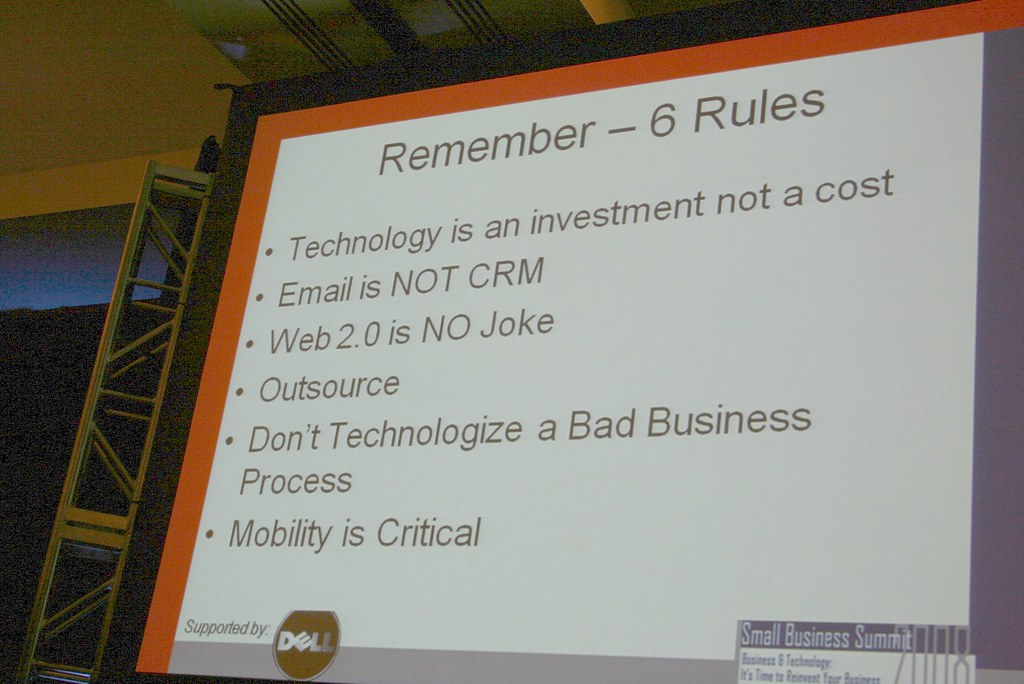The Importance of CRM Integration Services
In today’s digital world, businesses manage mountains of customer data. This information includes demographics, interactions with marketing and email campaigns, preferences, purchase histories, and touchpoints from various systems, software, apps, and tools. Effective management of this data can provide businesses with valuable insights and a better understanding of their customers. However, to benefit from this data, companies must organize and integrate it, glean insights from it, and act on those insights. Data-based decisions and actions drive a company forward.
CRM integration is the process of connecting a company’s CRM software with other applications and software to improve the customer experience, streamline access and analysis of customer data, and increase productivity. Integrating CRM with e-commerce, marketing, and customer service can help businesses identify potential customers and market to them effectively while also improving communication, customer care, and opportunities for automation.
Successful CRM integration is so much more than just the ability to access and move data between systems. It requires a productive approach paired with effective strategies that work long term and help companies access their data without any issues. In this article, we will explore the benefits of CRM integration services and the strategies behind successful integration, using real-world examples from top integration service providers Empellor CRM and CIENCE.
Let’s dive in!
Benefits of CRM Integration Services
Integrating CRM with other software and applications can bring a myriad of benefits to businesses. In this section, we will discuss some of the most significant benefits of CRM integration services.
1. Increase Productivity
CRM integration can increase productivity by automating tasks and streamlining access and analysis of customer data. According to Salesforce, integrating CRM with e-commerce can automate order processing and ensure that customer data is updated in real-time, allowing businesses to provide better customer service. Moreover, integrating CRM with customer service software can provide customer service teams with a 360-degree view of customer interactions, allowing them to provide personalized support and address customer issues more effectively.
2. Improve Communication and Customer Care
Integrating CRM with marketing software can help businesses identify potential customers and market to them effectively. By integrating CRM with marketing automation software, businesses can create targeted email campaigns that are personalized to each customer’s preferences and interests. Furthermore, Empellor CRM states that integrating CRM with customer service software can provide customer service teams with a 360-degree view of customer interactions, allowing them to provide personalized support and address customer issues more effectively.
3. Identify Potential Customers and Market to Them Effectively
Integrating CRM with e-commerce, marketing, and customer service can help businesses identify potential customers and market to them effectively. Forbes suggests that by integrating CRM with marketing automation software, businesses can create targeted email campaigns that are personalized to each customer’s preferences and interests. Moreover, integrating CRM with e-commerce can automate order processing and ensure that customer data is updated in real-time, allowing businesses to provide better customer service.
4. Opportunities for Automation
Integrating CRM can provide businesses with opportunities for automation. For example, IT Convergence explains that integrating CRM with marketing automation software can automate email campaigns, freeing up marketing teams to focus on more strategic tasks. Additionally, integrating CRM with customer service software can automate customer service tasks, such as ticket routing and response management, allowing customer service teams to focus on providing personalized support.
In the next section, we will discuss the strategies for successful CRM integration.
Strategies for Successful CRM Integration
Integrating CRM with other software and applications can be a complex process. In this section, we will discuss the strategies for successful CRM integration, using insights from top integration service providers Empellor CRM and CIENCE.
1. Define Your Objectives
Before embarking on a CRM integration project, it’s essential to define your objectives. According to Empellor CRM, businesses should identify the problems they are trying to solve and the goals they want to achieve with CRM integration. This will help them determine the software and applications they need to integrate and the data they need to share between systems.
2. Choose the Right Integration Platform
Choosing the right integration platform is critical for successful CRM integration. According to IT Convergence, integration platforms like Mulesoft, Dell Boomi, Oracle, and Jitterbit allow for complex bi-directional data and process orchestration with complex business rules, removing the complexity of integrations and enabling self-service integration. These platforms provide businesses with the tools they need to integrate their CRM software with other applications and software effectively.
3. Ensure Data Quality
Data quality is critical for successful CRM integration. According to CIENCE, businesses should ensure that their data is clean, complete, and consistent before integrating it with their CRM software. This will help prevent data errors and ensure that businesses can make data-based decisions.
4. Involve All Stakeholders
CRM integration affects multiple departments within a business. It’s essential to involve all stakeholders in the integration process to ensure that everyone is aligned and that the integration meets the needs of the business. According to Empellor CRM, businesses should involve IT professionals, marketing teams, customer service teams, and other relevant stakeholders in the integration process.
5. Test and Monitor the Integration
Testing and monitoring the integration is crucial for ensuring that it works correctly. According to CIENCE, businesses should test the integration thoroughly before going live to ensure that it works as expected. Furthermore, they should monitor the integration regularly to identify and address any issues that arise.
In the next section, we will explore how top integration service providers can help businesses with CRM integration.
Top CRM Integration Service Providers
Integrating CRM with other software and applications can be a complex process that requires expertise and experience. In this section, we will discuss the top CRM integration service providers that businesses can turn to for help.
1. Empellor CRM
Empellor CRM is a leading provider of CRM integration services. According to their website, their team of integration experts design and build scalable solutions with just one thing in mind: leveraging your data to power up your business above and beyond your wildest expectations. They offer a range of services, including custom integrations, data migrations, and API development.
2. CIENCE
CIENCE is another top provider of CRM integration services. According to their website, they can help businesses create a single view of their customers across all business functions, aligning sales and marketing teams for a healthy sales funnel. They offer a range of services, including CRM integration with marketing automation software, data cleansing, and custom integration development.
3. IT Convergence
IT Convergence is a global provider of IT consulting and integration services. According to their website, they offer a range of CRM integration services, including integration with marketing automation software, e-commerce platforms, and customer service software. They work with a range of integration platforms, including Mulesoft, Dell Boomi, Oracle, and Jitterbit.
In the next section, we will discuss the costs associated with CRM integration services.
The Costs of CRM Integration Services
CRM integration services can vary in cost depending on the services required, the complexity of the integration, and the service provider. In this section, we will discuss the costs associated with CRM integration services and the factors that can affect those costs.
1. Service Provider Costs
The cost of CRM integration services can vary depending on the service provider. According to Forbes, service providers typically charge an hourly rate for their services, which can range from $75 to $300 per hour. Some providers offer fixed-price packages for specific services, which can range from $3,000 to $20,000 or more.
2. Integration Complexity
The complexity of the integration can also affect the cost of CRM integration services. According to IT Convergence, integrations that require custom development or complex workflows can be more expensive than integrations that use pre-built connectors or APIs. Additionally, integrations that require data cleansing or data migration services can also be more expensive.
3. Software and Application Costs
In addition to the cost of CRM integration services, businesses may also need to pay for software and application costs associated with the integration. According to Salesforce, businesses may need to pay for licenses or subscriptions to the software and applications they are integrating with their CRM software. These costs can vary depending on the software and application.
4. Total Cost of Ownership
When considering the costs of CRM integration services, businesses should also consider the total cost of ownership (TCO). According to Forbes, TCO includes not only the upfront costs of the integration but also the ongoing costs associated with maintaining and updating the integration. These costs can include software and application upgrades, integration maintenance, and IT support.
In the next section, we will discuss the benefits of CRM integration services.
The Benefits of CRM Integration Services
CRM integration services offer a range of benefits to businesses, including improved productivity, better customer experiences, and streamlined workflows. In this section, we will discuss some of the key benefits of CRM integration services.
1. Improved Productivity
One of the primary benefits of CRM integration services is improved productivity. According to IT Convergence, integrations that automate workflows and eliminate manual data entry can save businesses time and money. By integrating their CRM software with other software and applications, businesses can create a more efficient and streamlined workflow, allowing employees to focus on more important tasks.
2. Better Customer Experiences
CRM integration services can also help businesses provide better customer experiences. According to Forbes, integrating CRM with e-commerce, marketing, and customer service software can help businesses identify potential customers and market to them effectively, while also improving communication, customer care, and opportunities for automation. A 360-degree view of the customer can also be achieved, enabling businesses to provide personalized experiences and improve customer satisfaction.
3. Streamlined Workflows
Another benefit of CRM integration services is streamlined workflows. According to Empellor CRM, great integrations are designed to ensure that mobile apps, websites, enterprise systems, and other applications function seamlessly together while enhancing nearly every aspect of a business. Integration can also streamline business processes, workflows, scheduling, and task automations, making it easier for employees to complete tasks and reducing the risk of errors.
In the next section, we will discuss some tips for selecting a CRM integration service provider.
Tips for Selecting a CRM Integration Service Provider
Selecting the right CRM integration service provider is crucial for businesses looking to integrate their CRM software with other software and applications. In this section, we will discuss some tips for selecting a CRM integration service provider.
1. Experience and Expertise
When selecting a CRM integration service provider, it is important to consider their experience and expertise. According to Salesforce, businesses should look for service providers with experience integrating CRM software with the software and applications they are using. Service providers with a strong track record of successful integrations are more likely to provide high-quality services.
2. Customization
Another important factor to consider when selecting a CRM integration service provider is customization. According to Empellor CRM, great integrations are designed to ensure that mobile apps, websites, enterprise systems, and other applications function seamlessly together while enhancing nearly every aspect of a business. Service providers that offer customization can tailor the integration to the specific needs of the business, ensuring that it works as intended.
3. Support and Maintenance
It is also important to consider the support and maintenance offered by the CRM integration service provider. According to Forbes, businesses should look for service providers that offer ongoing support and maintenance to ensure that the integration continues to work properly. Service providers that offer support and maintenance can help businesses avoid issues and ensure that the integration remains up-to-date.
4. Cost
Finally, businesses should consider the cost of the CRM integration service provider. According to IT Convergence, service providers typically charge an hourly rate for their services, which can range from $75 to $300 per hour. Some providers offer fixed-price packages for specific services, which can range from $3,000 to $20,000 or more. Businesses should consider their budget and the services they require when selecting a service provider.
In the next section, we will discuss some common mistakes to avoid when selecting a CRM integration service provider.
Common Mistakes to Avoid When Selecting a CRM Integration Service Provider
Selecting the right CRM integration service provider can be a challenging task. In this section, we will discuss some common mistakes to avoid when selecting a CRM integration service provider.
1. Not Considering the Specific Needs of the Business
One common mistake that businesses make when selecting a CRM integration service provider is not considering their specific needs. According to IT Convergence, businesses should consider their budget, the services they require, and their long-term goals when selecting a service provider. Failing to consider these factors can result in choosing a service provider that is not the right fit for the business.
2. Not Checking References
Another common mistake is not checking references. According to Forbes, businesses should ask for references and check them before selecting a service provider. Talking to other businesses that have worked with the service provider can provide valuable insights into their experience and the quality of their services.
3. Not Getting a Clear Scope of Work
Not getting a clear scope of work is another common mistake that businesses make. According to Salesforce, businesses should get a clear scope of work from the service provider before signing a contract. The scope of work should outline the services that will be provided, the timeline for completion, and the cost of the project. Without a clear scope of work, businesses may end up with unexpected costs or delays.
4. Not Considering the Long-Term Effects
Finally, businesses should consider the long-term effects of the CRM integration. According to Empellor CRM, businesses should look for service providers that offer ongoing support and maintenance to ensure that the integration remains up-to-date and continues to work properly. Failing to consider the long-term effects of the integration can result in issues down the line.
In the next section, we will summarize the key takeaways from this article.
Wrapping Up
In this article, we have discussed the importance of CRM integration services and provided tips for selecting a CRM integration service provider. We have also highlighted some common mistakes to avoid when selecting a provider. Here are the key takeaways from this article:
- CRM integration services can help businesses streamline access and analysis of customer data, improve the customer experience, and increase productivity.
- When selecting a CRM integration service provider, businesses should consider their specific needs, the service provider’s experience and expertise, customization, support and maintenance, and cost. IT Convergence
- Common mistakes to avoid when selecting a CRM integration service provider include not considering the specific needs of the business, not checking references, not getting a clear scope of work, and not considering the long-term effects of the integration. Forbes, Salesforce, Empellor CRM
At Techslax, we strive to provide informative and valuable content to our readers. If you enjoyed this article, be sure to check out our other great content on the latest technology trends and best practices. Thanks for reading!
Questions & Answers
Question: Who provides CRM integration services?
Answer: There are many providers of CRM integration services, including IT Convergence, Empellor CRM, and more.
Question: What are CRM integration services?
Answer: CRM integration services connect CRM systems with other applications to streamline access and analysis of customer data.
Question: How do CRM integration services benefit businesses?
Answer: CRM integration services improve the customer experience, increase productivity, and provide a 360-degree view of the customer.
Question: What factors should businesses consider when selecting a CRM integration service provider?
Answer: Businesses should consider their specific needs, the service provider’s experience and expertise, customization, support and maintenance, and cost.
Question: How can businesses avoid common mistakes when selecting a CRM integration service provider?
Answer: Businesses can avoid common mistakes by considering their specific needs, checking references, getting a clear scope of work, and considering the long-term effects of the integration.
Question: What objections do businesses have about CRM integration services?
Answer: Some businesses may be hesitant to invest in CRM integration services due to concerns about cost, complexity, and potential disruption to existing systems. However, the benefits often outweigh these concerns.






